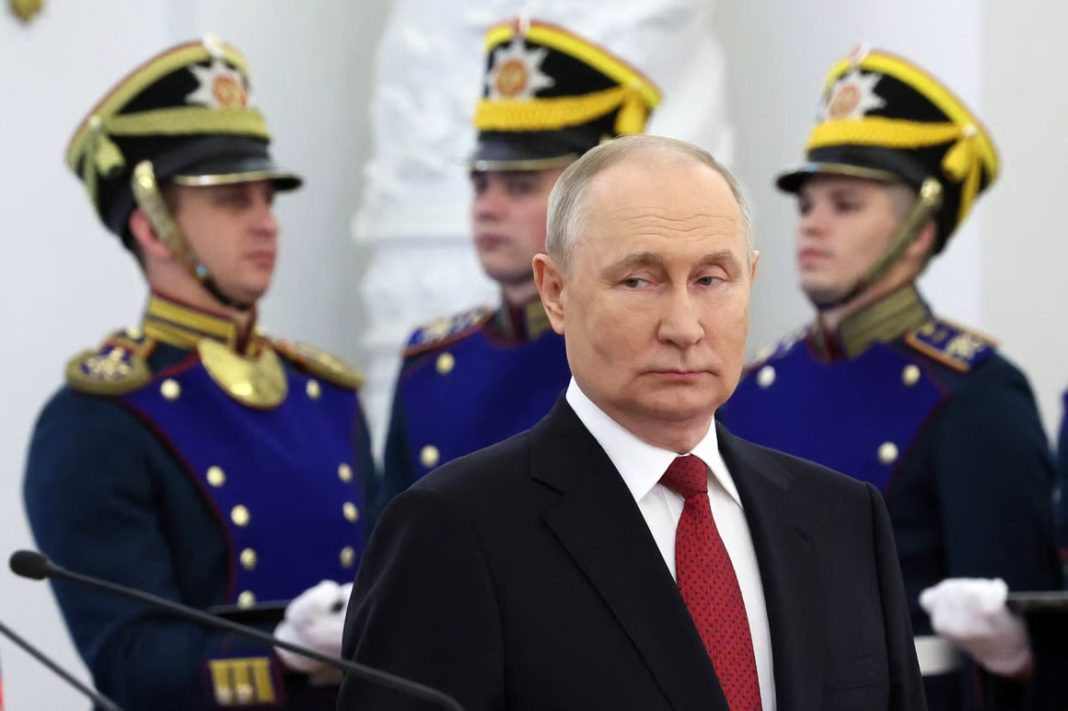Russia’s recent adjustments to its nuclear doctrine signal an intention to deter Ukraine’s Western allies from deepening their involvement in the ongoing conflict, analysts assert. The Kremlin’s new stance, underscored by a decree from President Vladimir Putin lowering the threshold for nuclear weapon use, aligns with a series of statements reflecting Moscow’s perspective of an escalating threat from the West.
In a concerning escalation, Russian officials responded forcefully this week following Ukraine’s deployment of longer-range US-supplied missiles to strike targets within Russian territory. Foreign Minister Sergei Lavrov indicated that these developments illustrate a Western agenda aimed at heightening the conflict. He condemned the missile attacks as indicative of a larger strategy to provoke tensions in the region.
The adoption of longer-range munitions by Ukraine, now cleared for use by Washington, marks a significant shift in the military capabilities available to Kyiv, one that Russian military analysts believe could further incite retaliation. Vassily Kashin, a military expert, contended that the missile launch signifies an indirect assault on Russia, attributing the operation’s execution to a collaborative effort involving not just American resources but also military supplies from allies such as France and the UK, linking these actions to a broader coalition against Russia’s territorial claims.
Kashin further emphasized that the deployment of such weapons in contested areas like Crimea and Donbas—territories Russia asserts as its own but are recognized internationally as Ukrainian—complicates the conflict’s dynamics. He pointed out that while the Kremlin deems these regions strategically significant, their status remains a point of contention on the global stage.
Putin’s history of nuclear posturing, a tactic introduced shortly after Russia’s initial invasion of Ukraine in early 2022, appears to be recalibrated in response to these recent developments. The Telegram channel Rybar, which has ties to the Russian military, reported that Moscow’s threats are increasingly met with skepticism, leading to perceptions of diminishing credibility in its warnings and constraints on its strategic maneuvering.
Maxim Starchak from Queen’s University articulated that the Kremlin’s revised military doctrine not only decreases the threshold for potential nuclear engagement but also introduces an element of ambiguity regarding what constitutes a significant territorial threat. This vagueness contributes to a precarious environment where the parameters of acceptable conduct and response are unclear, raising concerns about miscalculations that could escalate into direct confrontations.
With the recent collaboration between North Korean forces and the presence of US-backed missile capabilities in Ukraine, Starchak warned that the situation teeters closer to a direct conflict involving NATO. He emphasized the urgency of the Kremlin in achieving its objectives amid intensified support for Ukraine from Western nations, which he believes is prolonging the conflict and diminishing Russia’s strategic options.
Pavel Podvig, an independent analyst based in Geneva, asserted the necessity for Russia to expedite its military goals, suggesting that the Kremlin perceives a narrowing window of opportunity amid shifting political landscapes in the US. The possibility of a more amenable foreign policy under a future Trump administration could motivate Putin to act swiftly to secure advantages on the battlefield.
Tatiana Stanovaya from the Carnegie Russia Eurasia Center echoed this sentiment, positing that Putin may view the current geopolitical climate as a pivotal moment, navigating between expectations of potential peace overtures while simultaneously criticizing the existing Biden administration’s policies as reckless. This approach further complicates the regional security landscape, intertwining military maneuvers with broader diplomatic strategies in an increasingly fraught environment.





